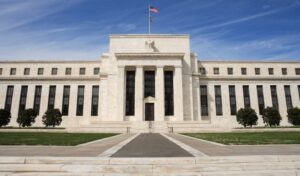
Scholar argues regulation is needed to address unbridled intermediary activity in cryptocurrency.
In the wake of the 2008 Global Financial Crisis, many consumers and investors lost faith in banks’ ability to protect their customers’ interests. As investors and consumers started looking for ways to break free from the grip of financial institutions, Bitcoin creator, Satoshi Nakamoto, attracted many followers after he published a white paper in October 2008 calling for a decentralized, “peer-to-peer” financial system.
Today, cryptocurrency, of which Bitcoin is perhaps the best-known form, has retained much of its early appeal as a digital or virtual alternative to traditional currency. But in his article, Timothy G. Massad of the Harvard Kennedy School argues that cryptocurrency has not delivered on Nakamoto’s vision.
Massad calls attention in particular to the growing reliance on financial intermediaries in the crypto-sector. He admits that the rise of intermediaries is not inherently problematic, as some cryptocurrency advocates suggest, and that it is, in fact, a natural development in any financial space. Yet he argues that allowing these intermediaries to operate unsupervised has serious risks.
Generally, cryptocurrency users are able to bypass banks because each financial transaction can instead be validated and publicized by a network of computers on the currency platform. Massad says that intermediaries in the crypto-sector have emerged to fill roles beyond those of validation and publicity, such as storing users’ money in virtual wallets or exchanging cryptocurrency into U.S. dollars and back. Some of these firms even comingle their customers’ funds and use the lumped deposits much like typical banks, he notes.
But the problem is that these intermediaries, unlike banks, are not subject to any regulations barring fraud or misuse of funds.
Massad cites a Reuters report on Bitcoin fraud listing “26 thefts between June 2011 and April 2017” that amounted to about $3.5 billion in value. He warns that these numbers still do not tell the whole story, since, with limited oversight in the space, many instances of fraud or misrepresentation may be unreported.
In addition, Massad suggests that although the cryptocurrency market may seem removed from the rest of the global financial system, many trading firms and banks—including some of the world’s biggest financial institutions—are increasingly transacting with crypto-intermediaries. Consequently, the financial system at large is becoming increasingly exposed to failures in the crypto-markets, as well as to other serious risks like cyberattacks.
The crypto-sector also lacks the same kind of regulatory protections for cybersecurity risks that the Securities Exchange Commission (SEC) and various banking regulators impose on traditional financial firms. Investing in cybersecurity is costly, Massad stresses, and without any regulatory incentives to take necessary precautions, the crypto-sector will continue to be vulnerable to attack.
In addition, the lack of regulation in the crypto-sector has allowed individuals to use cryptocurrencies to fund illegal activities like selling narcotics or firearms. Because many cryptocurrency platforms have made it possible for users to remain completely anonymous on their networks, it can be difficult for authorities to track down users involved in these operations. Requiring trading platforms and wallets “to register and comply with basic federal transparency standards,” Massad said, would help mitigate the risk of cryptocurrency being used for illegal activity.
Both the SEC and the Commodity Futures Trading Commission (CFTC) currently have some statutory authority to oversee crypto-markets and they have recently started enforcing regulations on the sector more rigorously. But Massad argues that the current level of regulatory oversight by these agencies is insufficient.
The SEC and the CFTC have limited budgets, Massad notes. They simply cannot extend their reach without more resources. Massad also argues that financial instruments in the crypto-sector can be difficult to define for regulatory purposes.
The SEC is authorized to regulate crypto-assets that can be deemed “securities”—instruments like stocks and bonds. Some offerings in the crypto-sector do in fact fall under the securities umbrella, Massad explains. But the SEC has determined that Bitcoin is not a security, which Massad says creates uncertainty over whether the SEC can regulate institutions that trade both Bitcoin and securities.
Massad notes that the CFTC, on the other hand, considers Bitcoin to be a commodity—that is, a good that can be purchased and sold, such as oil or gold. The agency currently has authority to regulate any “derivative” product involving commodities, such as contracting to buy Bitcoin on a future date at a price agreed upon today. But Massad explains that the CFTC still has limited authority over trading commodities for cash, and a considerable amount of activity in the crypto-sector actually revolves around buying and selling Bitcoin for cash.
To improve regulatory efforts going forward, Massad advocates for a comprehensive, federal framework instead of piecemeal action by multiple agencies or states. The crypto-market is international, and Massad argues that the United States should set an example for how to regulate the market properly.
He suggests that Congress enact legislation giving greater resources to both the SEC and the CFTC to allow the agencies to extend their regulatory reach. In addition, he argues that Congress should expand the authority of either of these agencies to shore up the regulatory gap over the cryptocurrency cash market.
Instead of expressing specific requirements for regulations, Massad suggests that Congress establish core principles for regulation, including transparency requirements, risk management and cybersecurity standards, and periodic reporting of records.
In the meantime, Massad urges the cryptocurrency industry itself to continue to develop its own standards to help supplement and inform governmental regulation.



